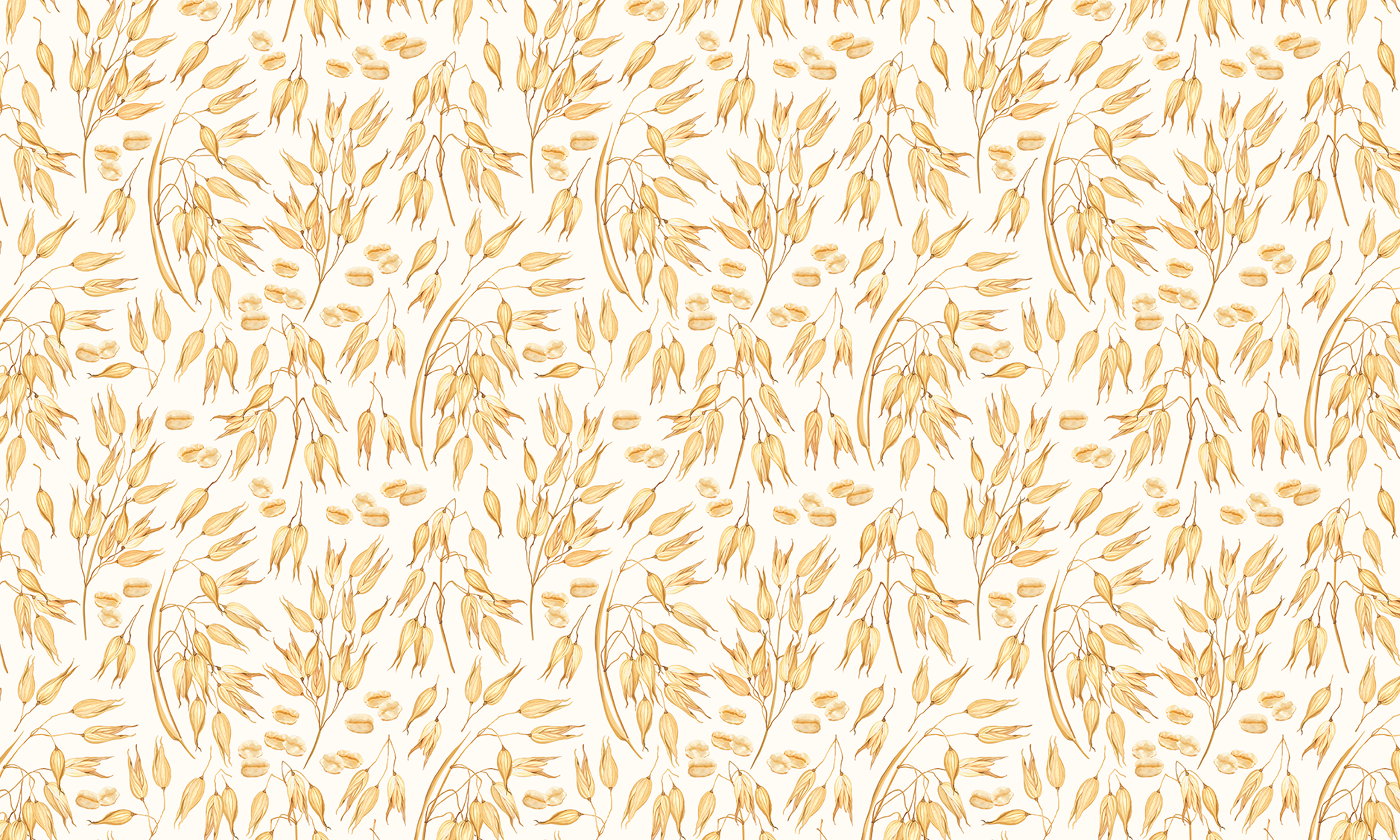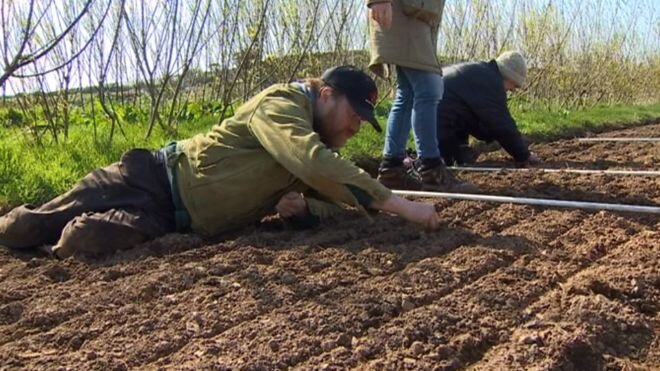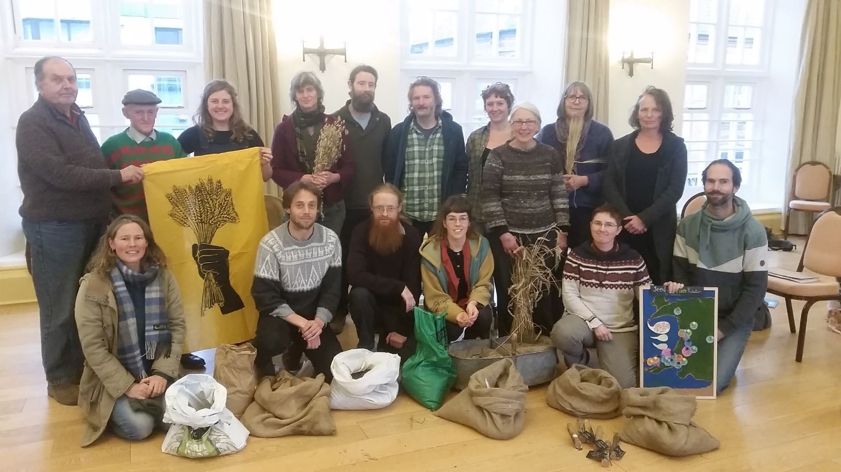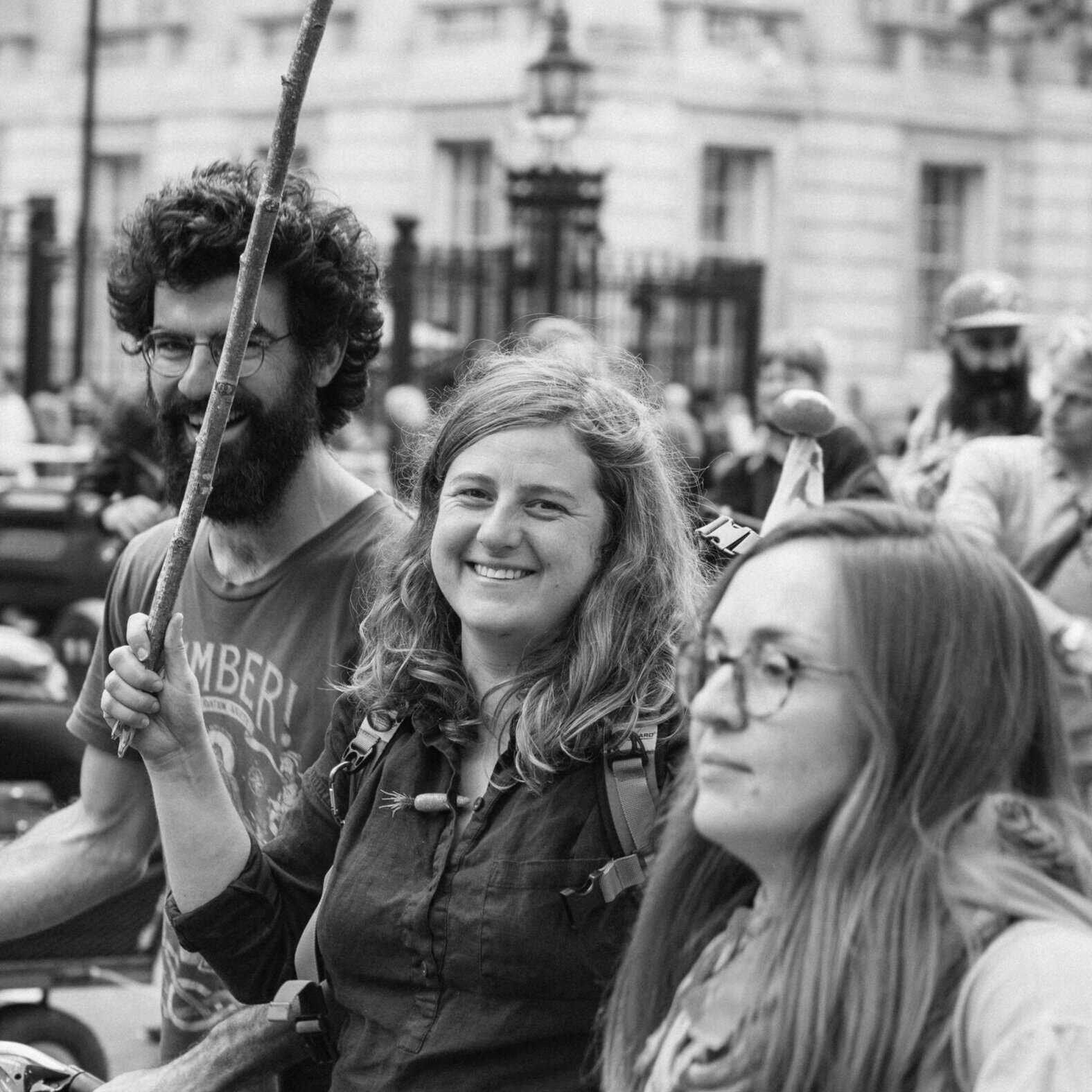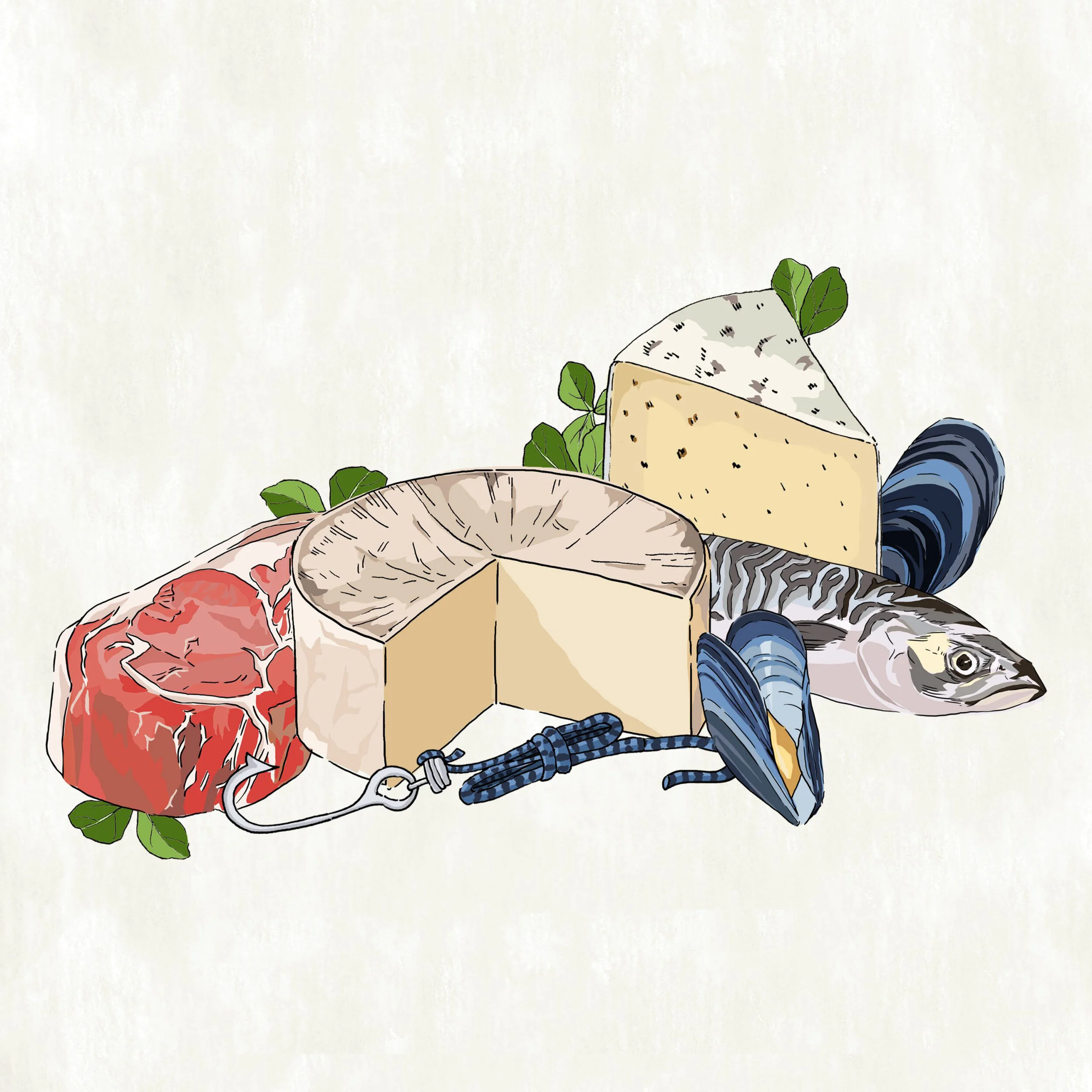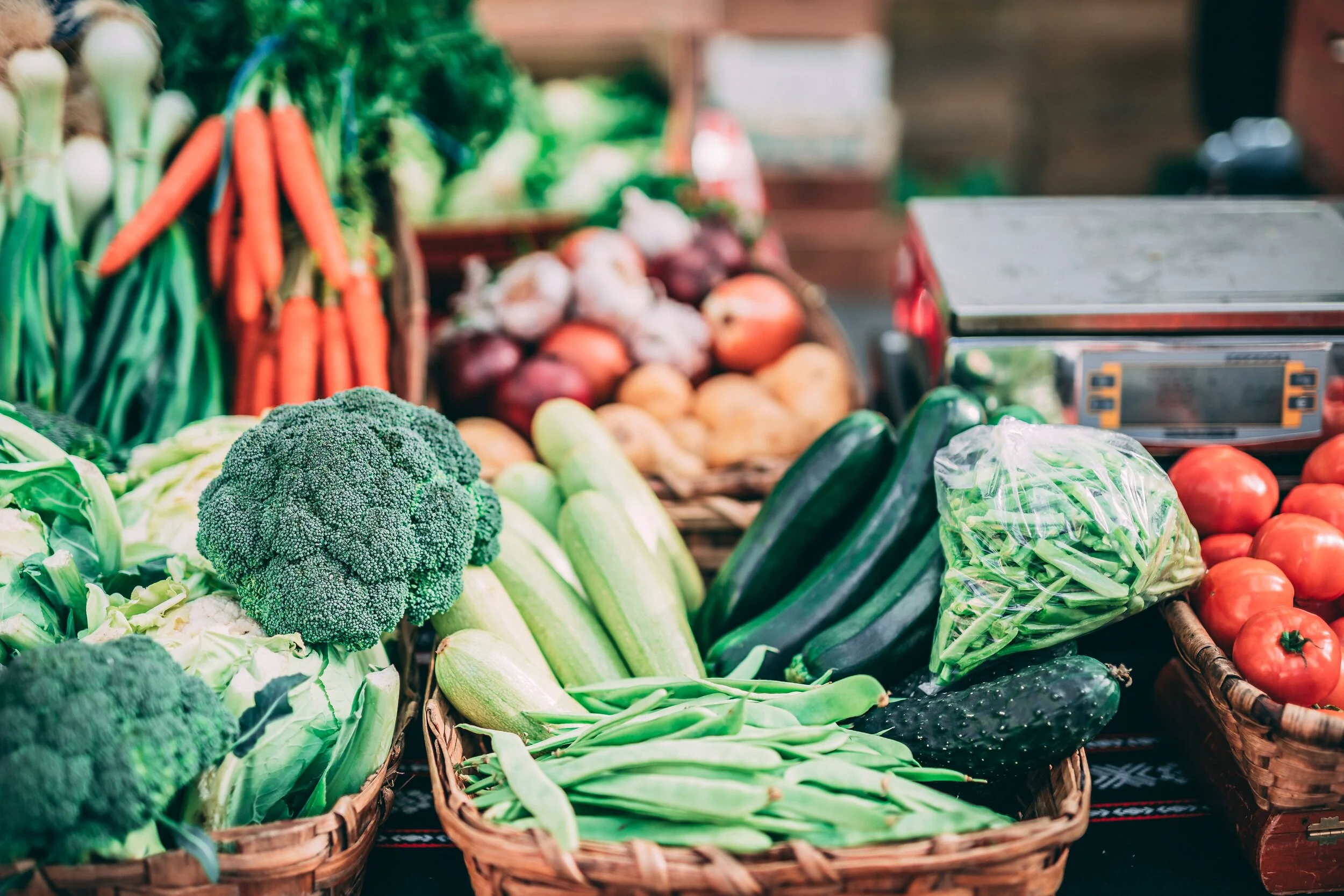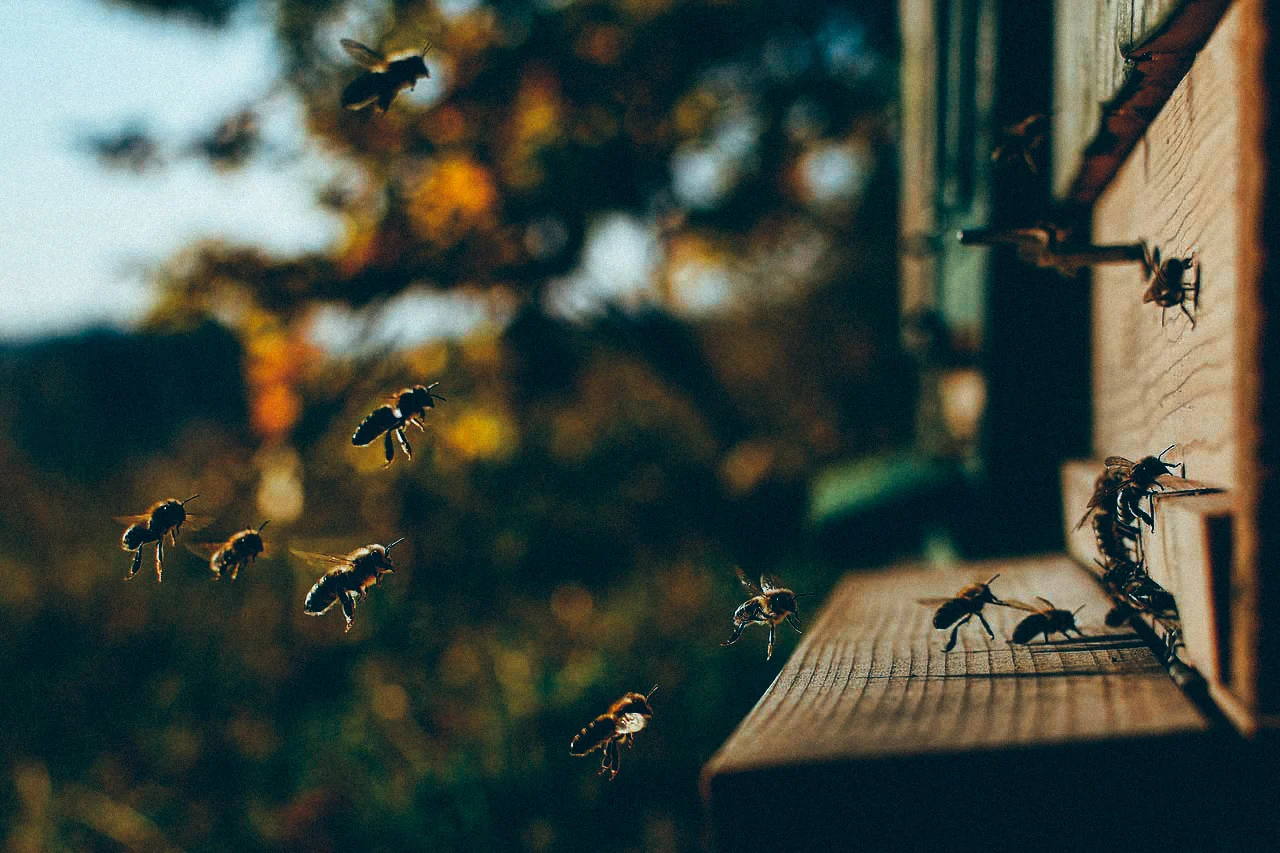Written by Katie Hastings, Seed Sovereignty Network, who tells the story of rejuvenating regional heritage grain in Wales.
On a sharp day on the cliffs of the Pembrokeshire Coast last spring, a small group of farmers and growers met to place rare Welsh oat seeds in the ground. Where usually these seeds would be broadcast across a field or drilled in long rows, each of these rare oats was placed diligently by hand into carefully drawn channels. So momentous was this that the BBC focused their cameras on the sowing, broadcasting it on the 6-o-clock news across Wales. Gerald Miles – organic farmer of Caerhys Farm since the age of 16 – cracked his signature jokes as we picked each seed from their containers against a strong wind coming from the sea.
Although these oats were kindly donated to us from the seed stores of the IBERS plant research centre, they were already ours. These oats – with names like Hen gardie, Ceirch llwyd, Ceirch du bach – were grown on Welsh soils for hundreds of years. The seed was saved by the communities that grew them and is a collectively owned commons. As different regional seeds were passed through generations they adapted to the soils and climates of the varied lands they grew in. These oats co evolved with Welsh farming communities, being saved for the traits the farmers selected and shaping the lives of those growing them in turn.
In the last 50 – 100 years we have lost these oats from our fields. Mixed farms of animal, crop and forest have been disappearing from under our noses. Where arable crops were once grown for animal feed and human food all over the varied conditions of Cymru, we now declare most of Wales ‘unsuitable’ for arable production. Feeding this fire is the fact that we have moved away from growing our native indigenous seeds, suited to our wet and luscious conditions, in favour of buying seeds bred to offer us better ‘performance’. Failing to see that seeds bred for high yields in industrial farming scenarios don’t work for smaller low input farms, we have forsaken the seeds that worked in our Welsh valleys in the past.
Coming together under the banner of the Llafur Ni (Our Cereals), our Seed Sovereignty Programme has been working with the farmers and growers on the ground who want to reclaim our grain seeds. Looking into the records of only one genebank we found 108 Welsh oat varieties secured against total extinction. But these seeds should not just be filed away in storage, they should be a part of our farms and our diets. These older seeds don’t just hold unknown genetic traits, unknown climatic tolerances, unknown disease resistance. They also hold the stories of the people who grew them and the history of our landscape. To let them disappear is to let a part of ourselves disappear.
Our Llafur Ni group decided to collectively sow Welsh oats on the clifftops of Caerhys Farm as a statement of reclamation. We were unprepared for the diversity these oats would show us, different shapes, sizes, sweetness and strength. Initially not a scientific experiment but a symbolic bringing into being of what should still be there, we started to take advice from experts at IBERS and the Organic Research Centre. We measured basic information about the oats growth, susceptibility to ‘lodging’ (falling over) and ripeness. While at the end of the year we were only able to harvest tiny quantities of seeds from these plants, we felt the weight of that first step on a long journey of resurrecting our indigenous grain seeds.
Our Llafur Ni network met again this autumn in the grand Guildhall in Aberteifi (Cardigan). Our numbers have swelled, our enthusiasm has focused. Smallholders, sheep farmers, market gardeners and seed library volunteers sat side by side to listen to two elder farmers tell us about the ways grains were grown, not too long ago, before industrial arable production.
Iwan Evans still grows the Ceirch du bach oats which were grown on his farm near Llandysul since “forever”. Iwan is now an island in a sea of diversity loss, still saving these Welsh oat seeds on his farm each year and keeping alive what would have once been commonplace. Joining with our group he has now been able to pass these seeds on to other growers in the hope that they will be safer preserved in several locations and slowly passed back to the farms who have lost them. He told us of his extensive vintage machinery collection and pledged machinery to our machinery ring so that others in the group can start to farm grains again.
Gerald Miles told us tales of threshing days when he was young, in which members of the community came together to process grain crops. Showing us pictures of beautiful farm machines which can be pulled by horses and run from small tractors, he made possible in our imaginations a type of low impact grain farming that was still widely practiced only 50 years ago. Giving us a call to action, he told us of the importance of continuing to reclaim and preserve our Welsh grains. “They could be the foods of the future” he said, “we might need them in order to survive”.
Llafur Ni are now planning to increase the varieties of seed reclaimed and spread the planting across 3 different farms to reduce the risk of losing precious crops. Aware that we are at the bottom of a mountain, it will take years to bulk these seeds into significant quantities, we are galvanised to work together and keep these seeds in farmers hands. As well as sharing seeds, we are also putting together lists of equipment that can be shared from farm to farm in order to better increase our Welsh grain production.
We are aware that the 108 Welsh oat varieties we found in one genebank are only the lucky ones that made it into that seed store. There is no record of the quantities of diversity lost across our country that never made it into the seed stores and breeding programmes. Now is the time to take back what genetic material we still have access to and not allow it to slip unnoticed into extinction. There is no better time to get involved in the front line of our indigenous seed preservation.
To join the Llafur Ni network contact the Seed Sovereignty Programme’s Wales Coordinator Katie Hastings on katie@gaianet.org .
Author: Katie Hastings
Katie Hastings is the Wales Coordinator for the Gaia Foundation’s Seed Sovereignty Programme. She is the Director of a community food organisation in Mid Wales called Mach Maethlon, where she runs a farmstart training programme and works with businesses to increase the amount of locally produced food they are buying. Katie also grows wheat and oats as part of the Machynlleth Grain Growers and has produced vegetables for many years.
